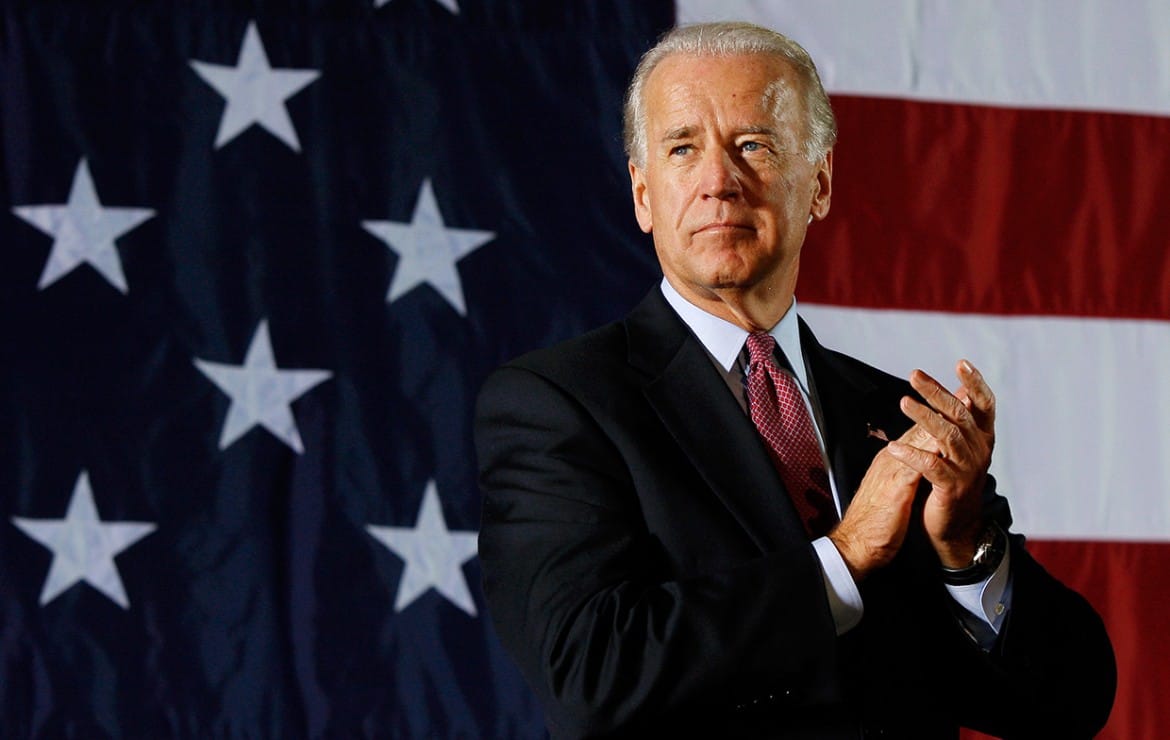
Joe Biden: My Plan to Safely Reopen America
An effective strategy to beat the virus is the ultimate answer to how we get our economy
People across America are stepping up to the plate. Millions are performing essential services at great personal risk, and millions more are staying at home, away from friends and extended family. In return, they want the answer to a simple question: What is the plan to safely reopen America?
So far, the Trump administration hasn’t supplied an answer.
The plan has to start with responding effectively to the immediate medical crisis and ultimately lead to the widespread availability and administration of a vaccine. But we can’t stay home and just wait for the vaccine to arrive. As others have noted, we need to build a bridge from here to there. Here’s what our national strategy should look like.
First, we have to get the number of new cases of the disease down significantly. That means social distancing has to continue and the people on the front lines have to get the supplies and equipment they need. President Trump needs to use his full powers under the Defense Production Act to fight the disease with every tool at our disposal. He needs to get the federal response organized and stop making excuses. For more Americans to go back to their jobs, the president needs to do better at his job.
Second, there needs to be widespread, easily available and prompt testing — and a contact tracing strategy that protects privacy. A recent report from Mr. Trump’s Department of Health and Human Services made clear that we are far from achieving this goal.
We should be running multiple times the number of diagnostic tests we’re performing right now. And we should be ready to scale up a second form of testing: rapid serology tests to tell who has already been infected with the coronavirus and has antibodies. This isn’t rocket science; it’s about investment and execution. We are now several months into this crisis, and still this administration has not squarely faced up to the “original sin” in its failed response — the failure to test.
Third, we have to make sure that our hospitals and health care system are ready for flare-ups of the disease that may occur when economic activity expands again. Reopening the right way will still not be completely safe. Public health officials will need to conduct effective disease surveillance. Hospitals need to have the staff and equipment necessary to handle any local outbreaks, and we need an improved federal system to get help to these places as needed.
Make no mistake: An effective plan to beat the virus is the ultimate answer to how we get our economy back on track. So we should stop thinking of the health and economic responses as separate. They are not.
Once we have taken these steps, we can begin to reopen more businesses and put more people back to work. Things will not go back to “normal” right away. As public health experts have said, we should expect activity to return gradually, with sites like offices and stores reopening before arenas and theaters.
That’s why we need to be working right now on the conditions under which our economy will operate as America gets back to work, and ensuring that the financial support our families and small businesses will need is fully in place.
As long as there is a significant risk that the virus can start spreading again, we are going to have to do some things differently. And the federal government should be leading the effort to figure that out.
If I were president, I would convene top experts from the private sector, industry by industry, to come up with new ideas on how to operate more safely. Perhaps offices and factories will need to space out workers and pursue other solutions to lessen risk of spread of the virus on the job. Restaurants may need new layouts, with diners farther apart.
From my talks with some industry leaders, I know that many are already at work on these questions. Mr. Trump needs to accelerate this thinking and make sure it is available to all businesses — including small businesses, not just the largest companies.
Likewise, I would direct the Occupational Safety and Health Administration, working with organized labor and employee groups, to figure out what protections workers need on the job during this period.
Getting protective gear to our health care workers and emergency medical workers is the top priority — and one where we are still lagging. But once that need is met, I’d ask the experts to figure out what delivery workers, waiters, clerks and so many other professionals need to be safe. And I would focus like a laser on the racial disparities in Covid-19 cases.
